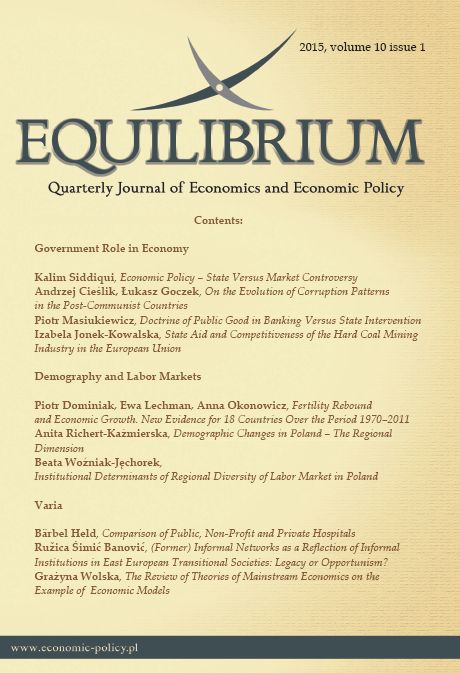Informal Networks as a Reflection of Informal Institutions in East European Transitional Societies: Legacy or Opportunism?
Informal Networks as a Reflection of Informal Institutions in East European Transitional Societies: Legacy or Opportunism?
Author(s): Ružica Šimić BanovićSubject(s): Economy
Published by: Instytut Badań Gospodarczych
Keywords: informal networks; institutional interaction; transition; Eastern Europe; post-socialism
Summary/Abstract: Only recently has the influence of culture on economic development been increasingly discussed among theoretical economists. Besides observing culture through cultural traditions inherited from ancestors, current social interactions are also considered as an influential factor. Over a long period of time, the research on East European transitional societies has been focused on formal institutions. Throughout that period, informal networks, many of which originated from the previous socio-political system, have mostly strengthened their position in the society and gained power in the formal structures. They helped in building the new capitalist states and therewith had positive effects by speeding up the transition process. Yet, in medium and long term, their activities typically resulted in state capture.This paper explores the persistence of tight informal and mostly inefficient formal business-government-society relations in Eastern Europe. It emphasises the influence of informal networks in the interaction of formal and informal institutions, and questions the possibility of new generations to make a turnaround in the functioning of the networks. Newly emerging social interactions are contextualised in the cultural dimensions: Power Distance and Collectivism versus Individualism. This paper argues that even when informal communities solely serve their own opportunistic purposes, the prevailing collectivist culture in the society provides tacit support to their existence and therewith delays the transformation from relation-based to rule-based governance. The empirical findings confirm the oversocialised view of the society and networks suggested by economic sociologists. Additionally, the changes in transitional institutional environment are deemed to be in line with the claims of institutional economists on durability and impact of informal institutions.
Journal: Equilibrium. Quarterly Journal of Economics and Economic Policy
- Issue Year: 10/2015
- Issue No: 1
- Page Range: 179-205
- Page Count: 26
- Language: English

